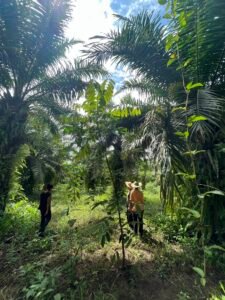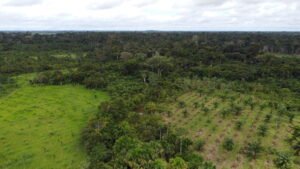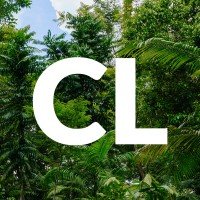1. Business Description

Courageous Land is a medium-sized private, associative business with a holding company configuration. The Regenera farm is one of the CL's businesses/projects. This farm has an area of 180 hectares, with around 50 hectares planted and 110 hectares of legal reserve (protected area). The area where the farm is located is known for the expansion of deforestation and the prevalence of illegal activities. The working conditions of the families living in this territory are usually informal and for women the alternatives are even scarcer. One of the few commercial outlets is Manaus, capital of the State of Amazonia, and the neighboring countries to the north (Guyana, Suriname and Venezuela), which makes it difficult to establish value chains and better pricing and negotiation conditions.
To facilitate understanding of the distribution of the farm's agroforestry systems, a grouping was made according to distinctive characteristics. In all these groupings, what is common is the presence of cocoa, lemon, açaí and various shade and timber trees (native and exotic). What changes in these three groupings are specific elements such as management or one or another commercial species. The first commercial harvest is planned for 2024 and will be lemon and fruits collected from the forest. In the future, they also hope to have a processing and beneficiation plant for products from agroforestry systems and from producer/gatherer families in the region. This project is expected to be carried out on another farm also in the Rorainópolis region, as a positive alternative for the integration of women into formal and beneficial jobs.
2. Production systems
The first set of plots is called “SAF Monodende” in the protocols. This is an area where dende (African palm) was historically monocultured, something that is quite common in the region and increasingly a driver of deforestation in Roraima. In this case, the agroforestry systems implemented by CL seek to make a gradual transition from dende monoculture to diversified and stratified SAF. There are plots where the dende is already felled and incorporated into the soil and other areas where the dende is standing and under these palms there are other commercial plants of the system that will be prioritized in the future. These dendes will soon be felled so that commercial and other plants can emerge. The second group of plots is the “Agricultural SAF”, which are systems implemented from scratch on abandoned pastures. In this area, as in the others, the natural regeneration of native species is greatly exploited. It is an area that requires high pasture management to maintain the establishment of developing species. Finally, there is the grouping of plots in the "SAF juquira", which are areas of secondary forest, where the three main commercial species have been implemented in the lower part of the developing forest. It is a fairly dense system, with a diversity of species and where there is low management.

3. Inputs
The management of the aforementioned plots is free of the use of pesticides, fungicides or herbicides. However, mainly in the implementation stage the systems were dependent on conventional fertilizer, due to the lack of viable alternatives in large quantities in the area. To change this condition, they are investing in a professional who can develop the production of bio-inputs for Courageous farms and thus have all organic inputs on hand. In addition to the production of their own input, they hope to be self-sustaining in food for the farm. They aim for everything consumed in the cafeteria to come from production, from vegetables to animal protein.
4. Because it is considered regenerative
Courageous Land is one of the businesses that use the term regenerative and based on this, they aim to develop an agriculture that brings, in addition to the benefits of climate change mitigation, economic benefits and income that allow investors and partners involved to be well remunerated. They want to see financial security but also an agriculture that is a legacy to the planet, where the benefits are collective, valuing agricultural practices based on ancestral knowledge, rescuing knowledge of native species, helping to domesticate species and promoting that collective legacy. It is this model of agriculture that they want to scale to more than 10,000 hectares, in addition to donating 1% of all production to families in vulnerable situations, mainly children, and impacting the food and nutritional security of the territory.











